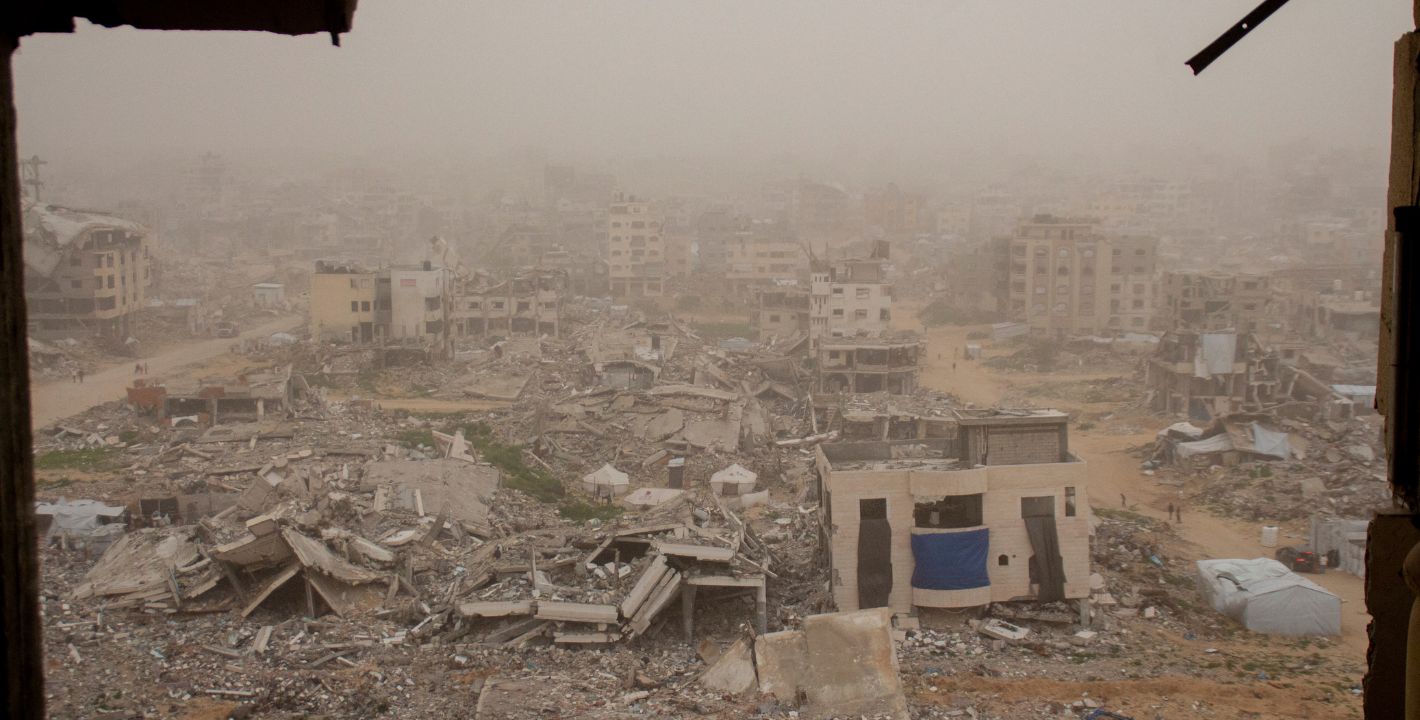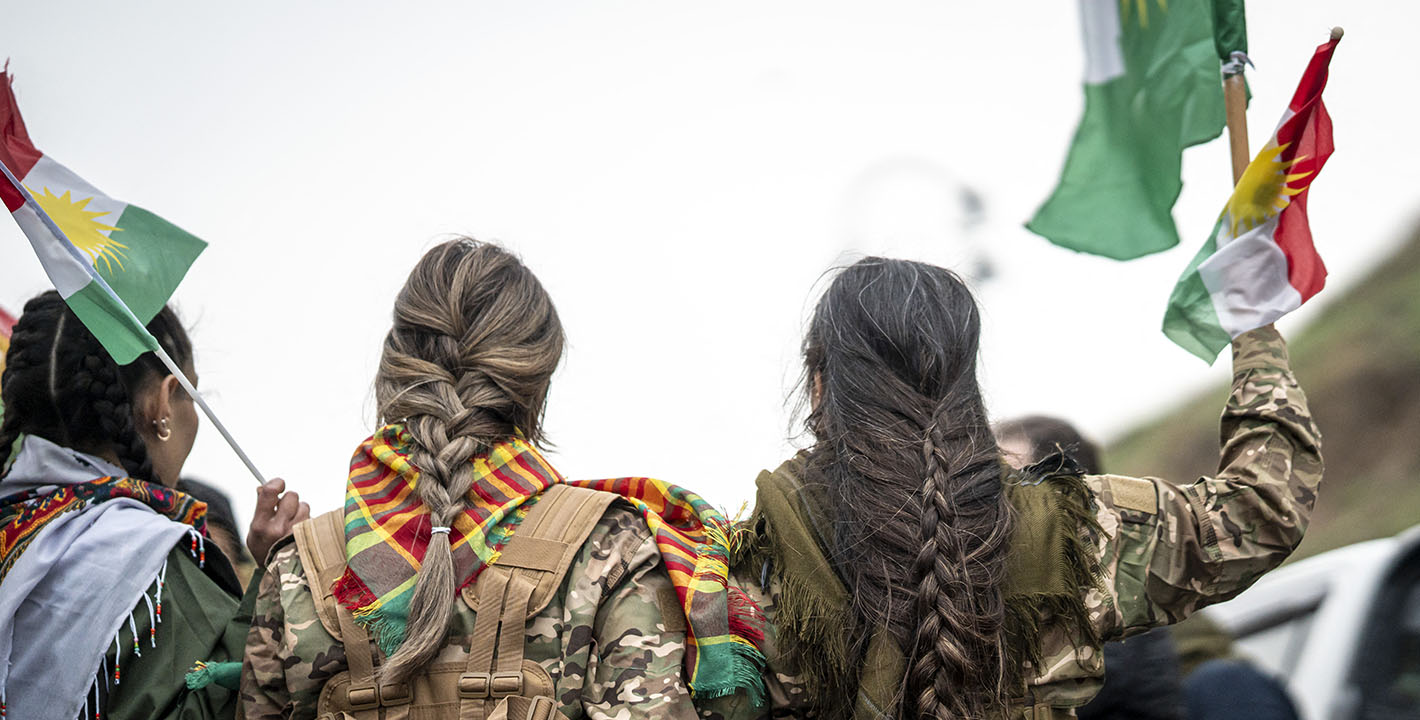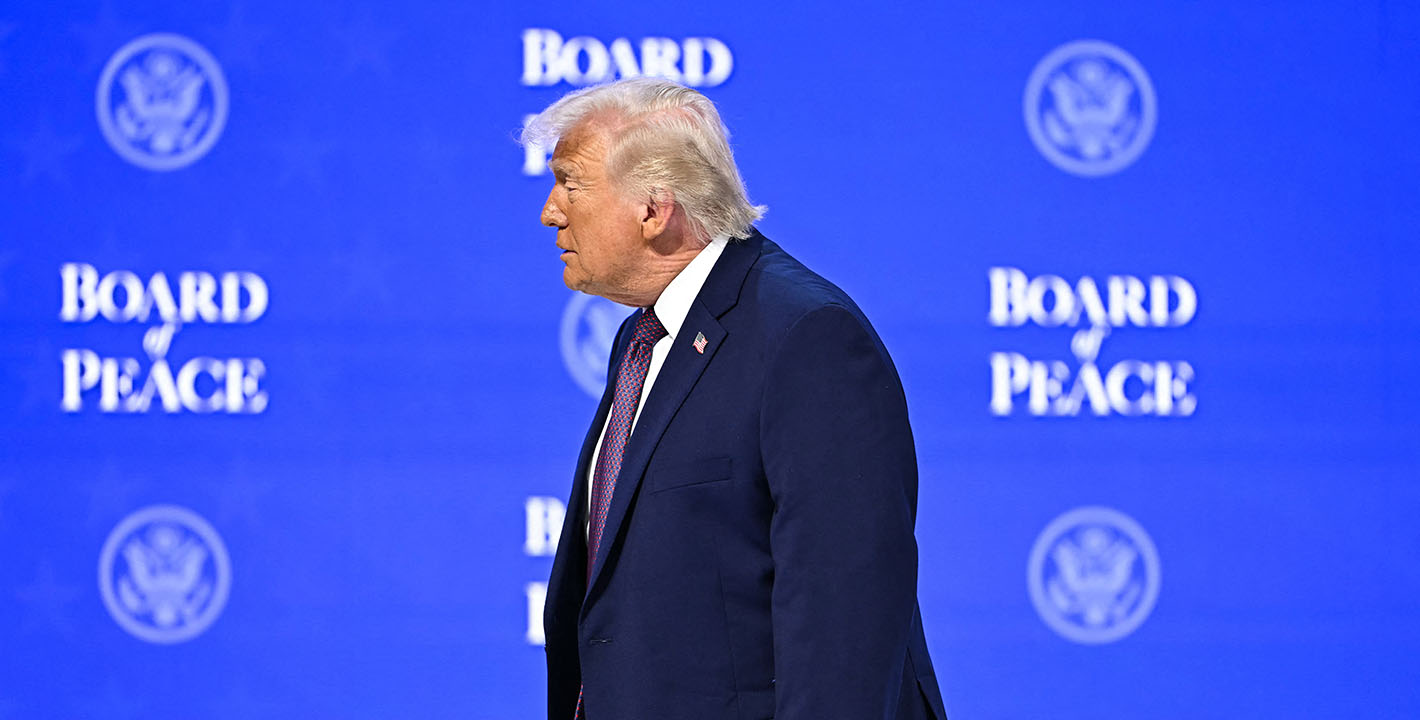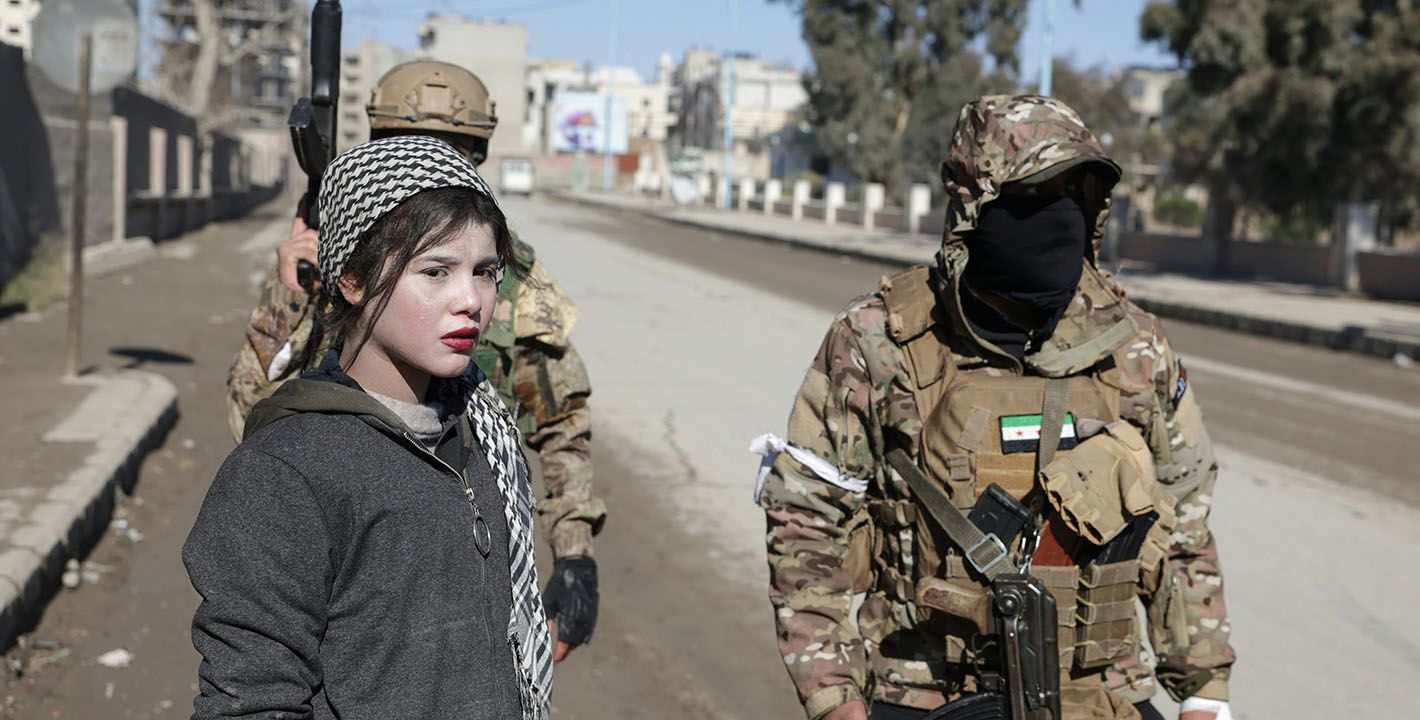Michael Young
{
"authors": [
"Michael Young"
],
"type": "commentary",
"blog": "Diwan",
"centerAffiliationAll": "dc",
"centers": [
"Carnegie Endowment for International Peace",
"Malcolm H. Kerr Carnegie Middle East Center"
],
"collections": [],
"englishNewsletterAll": "menaTransitions",
"nonEnglishNewsletterAll": "",
"primaryCenter": "Malcolm H. Kerr Carnegie Middle East Center",
"programAffiliation": "MEP",
"programs": [
"Middle East"
],
"projects": [],
"regions": [
"Levant",
"Palestine",
"Middle East"
],
"topics": [
"Political Reform"
]
}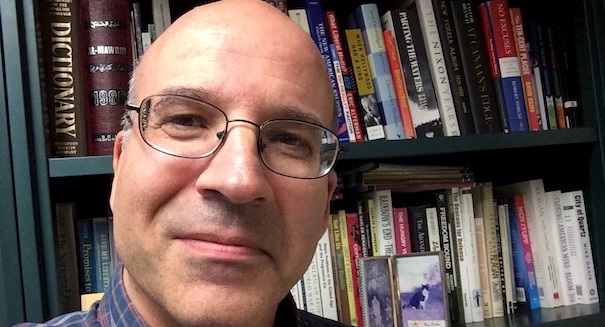
Source: Getty
A Decade Misunderstood
In an interview, Salim Yaqub discusses his most recent book, on U.S. policy in the Middle East during the 1970s.
Salim Yaqub is a professor of history at the University of California, Santa Barbara, where his focus is on U.S. policy towards the Middle East. Born in 1963 to an American mother and a Palestinian father, he moved in 1966 with his family to Lebanon, where his parents taught at the American University of Beirut. He returned to the United States in 1981 and has lived there ever since. Yaqub received his Ph.D. in U.S. history from Yale University in 1999 and taught for several years at the University of Chicago before joining the UC Santa Barbara faculty in 2005. His first book, Containing Arab Nationalism: The Eisenhower Doctrine and the Middle East, appeared in 2004. His second book, Imperfect Strangers: Americans, Arabs, and U.S.–Middle East Relations in the 1970s, was published in September 2016.
Michael Young: You’ve just written a book titled Imperfect Strangers: Americans, Arabs, and U.S.–Middle East Relations in the 1970s. Why did you choose to focus on that decade in particular?
Salim Yaqub: My first book looked at U.S.-Arab relations during the late 1950s. I wanted to continue studying that relationship but to focus on an era I personally remembered. (I was born in 1963, so the 1970s coincided with my childhood and teenage years.) Also, when I began the project in the early 2000s, the U.S. and British governments were starting to declassify secret documents in large numbers, giving scholars a much more detailed and candid view of official policymaking than had previously been available. A number of Arab-American manuscript collections, too, were becoming available at that time. The moment seemed ripe for tackling that era.
More generally, the 1970s have recently received a good deal of attention from historians. The decade was initially dismissed as a rather dull and formless interlude between the radical upheavals of the 1960s and the conservative restorations of the 1980s. Lately, however, historians of all facets of human experience—economic, political, social, cultural, international—have come to appreciate how transformative that decade was and how much it can tell us about the world of today. The more I examined the 1970s, the more convinced I became that these general observations held true for U.S.-Arab relations, too. So I thought I’d join this emerging “seventies school” and call the attention of my colleagues and students—and hopefully a broader readership—to the remarkable changes in the U.S.-Arab encounter that occurred four decades ago.
MY: You open with an intriguing description of the aftermath of Robert Kennedy’s assassination by a Palestinian, Sirhan Sirhan. Why begin that way?
SY: I wanted to start with an event that was already very well known and invite readers to look at it in a different way—and, in so doing, introduce them to some of the main themes of the book. Robert Kennedy’s assassination and its early aftermath were a “pregnant” moment for U.S.-Arab relations—a time when U.S. involvement in the geopolitics of the Middle East was rapidly increasing but when the vast majority of Americans, including well-informed opinion leaders, had not really reflected on that reality or considered its possible implications. Moreover, I noticed that a number of historical actors who populate my book took part in public debates in 1968–1969 over the meaning of Kennedy’s assassination. I thought this would be a vivid way to introduce them.
MY: You grew up in Beirut during the 1970s. How important was this in your decision to write this book?
SY: My Beirut background probably had more to do with my earlier decision to study U.S.-Arab relations in general than with my later decision to write this book. I lived in Beirut from 1966 to 1981—from the age of three until I was nearly eighteen. So I was in Lebanon during the early phases of its civil war. I also witnessed some of the spillover of the Arab-Israeli conflict: Palestinian refugee camps on the outskirts of Beirut, sonic booms resulting from Israeli military aircraft flying overhead, public demonstrations on behalf of Palestinian causes, and so on. While I can’t say I was attuned to Middle Eastern politics during my time in Lebanon (in fact, I did everything I could to avoid them), these experiences made a lasting impression on me. Years later, when I decided to go to graduate school to study American history, I found myself gravitating almost inexorably toward the subject of U.S. involvement in the Arab world.
Secondarily, however, my Beirut experience did influence my decision to focus on the 1970s in particular. In addition to providing a glimpse of events occurring in Lebanon itself, being in Beirut gave me a feel for the pan-Arab politics of the era. My youthful interests may have lain elsewhere, but not even I could remain completely oblivious to events like the death of Gamal Abdel Nasser in 1970, the October 1973 Arab-Israeli war, or the Camp David Accords of 1978. During that period I also took occasional trips to California, where the American side of my family was rooted and to which many of my Palestinian relatives had emigrated. These visits gave me a sense of how Middle Eastern themes were reverberating in the United States, whether among “ordinary” Americans or among Americans of Arab descent. I didn’t realize it at the time, but the 1970s were an era in which the Arab world was gaining unprecedented visibility in the United States, primarily because momentous developments in that region, such as the Arab oil embargo and the related increases in the price of Middle Eastern oil, were starting to impinge on Americans’ daily lives.
MY: Your book advances in parallel tracks. Even as you discuss Middle Eastern developments in the 1970s, you also describe those in the Arab-American community, which few authors have done. What were the general conclusions you reached?
SY: The 1970s were the decade when Arab-American activism really came into its own. Much of that activism was catalyzed by the June 1967 Arab-Israeli war, and it received a further boost from the October 1973 war. In previous decades, Arab-Americans had tended to identify more closely with their particular countries of origin (mostly Lebanon and Syria) and to be somewhat reticent about publicly opining on Middle Eastern geopolitics. After 1967, they acquired a more pan-Arab orientation and became, in general, sharply critical of U.S. policies toward the Middle East, especially regarding the Arab-Israeli conflict. Although Arab-Americans had virtually no success in altering those policies, they did subtly influence the broader political culture of the United States. Partly as a consequence of their efforts, American news media become somewhat more respectful of Arab perspectives, and Arab-Americans managed to carve out places for themselves in academia, business, the think-tank community, and other mainstream institutions.
MY: An individual who had great influence at the time when it came to the Middle East was then-secretary of state Henry Kissinger. Your views of him appear to be mixed. What did he contribute to a regional settlement, and what in his negotiating strategy represented an opportunity lost?
SY: In the course of researching this book, I came to appreciate Kissinger’s brilliance, erudition, eloquence, and sense of humor. I also gained considerable sympathy for his personal story. A Jewish refugee from the Third Reich, he returned as a U.S. soldier to Germany during World War II and personally took part in the liberation of Nazi death camps. These searing experiences powerfully shaped his approach to Arab-Israeli diplomacy. While I strongly disapprove of many of Kissinger’s decisions in this area, I respect the sincerity of his concern for the fate of fellow Jews.
But substantively, as I just suggested, Kissinger’s impact on Arab-Israeli diplomacy was quite destructive. Kissinger flatly opposed the restoration of the pre-June 1967 borders, and he established a diplomatic framework explicitly designed to fortify Israel’s occupation of Arab land. The “shuttle diplomacy” he conducted following the October 1973 war had the principal aim of drawing Egypt out of its confrontation with Israel and into a separate dialogue with that country. This bilateral peace process was consummated in the Camp David Accords of 1978, whereby Egypt recognized and made peace with Israel in exchange for Israel’s withdrawal from the Sinai Peninsula. With Egyptian power thus subtracted from the Arab-Israeli equation, the remaining Arab actors found it extremely difficult to place effective military pressure on Israel, which was therefore able to tighten its hold over the remaining occupied territories. This was precisely the outcome that Kissinger had sought. So if his diplomacy represented a lost opportunity, it was an opportunity lost not by him but by those who favored a different result.
MY: In many regards the 1970s was a paradoxical decade for the Palestinians. In terms of publicity it was the pinnacle of the Palestinian resistance movement, yet it was also a decade in which its failures became most visible, particularly thanks to the conflicts in Jordan and Lebanon. Would you agree or disagree, and why?
SY: I would agree with this statement but also place it in a wider framework. In the 1970s, we saw the rise and decline of one sort of Palestinian activism and the subsequent emergence of another. Early in the decade, Palestinian militants staged spectacular acts of violence that captured the imagination of Arab audiences, gained the respect of “liberation” movements elsewhere on the globe, and forced Western governments to take note of Palestinian national claims.
However, the limitations of this approach soon became apparent, not just with the military setbacks in Jordan and Lebanon but with the broader realization that violence alone could not alter stubborn realities on the ground. From about 1974 on, therefore, the mainstream leadership of the Palestine Liberation Organization began inching toward acceptance of a historic diplomatic compromise: a Palestinian mini-state in the West Bank and Gaza Strip living alongside Israel. Although the PLO as a whole did not formally adopt this position until the late 1980s, Yasser Arafat and other mainstream leaders were privately endorsing it as early as 1977. This evolution in Palestinian attitudes coincided with, and partly enabled, the emergence by the early 1980s of an international consensus favoring what we now call “the two-state solution.”
MY: The last U.S. president in the 1970s was Jimmy Carter. He’s remembered quite negatively these days, yet his intervention was vital to push through the Camp David Accords in 1978. What is your assessment of the man?
SY: Carter was the first U.S. president to grasp the centrality of the Palestinian issue and to seek to address it in a serious and sustained way. During his first year in office, 1977, he tried to convene an international conference in Geneva that could address the Arab-Israeli conflict in all of its dimensions, including the Palestinian one. I give Carter high marks for this effort, which was politically costly to him. But in late 1977, for reasons I discuss in my book, Carter was obliged to set aside his multilateral plans and work instead on fostering the bilateral Egyptian-Israeli peace process that resulted in the Camp David Accords of 1978. Although Camp David was (and continues to be) very warmly received in the United States, I argue that it impeded the quest for a broader settlement, which, of course, continues to elude us. I certainly agree that Carter’s intervention was essential to achieving the Camp David breakthrough, but I question the ultimate value of that breakthrough.
After leaving the presidency, Carter became much more vocal about the need to address the Palestinian issue, but that’s another story, beyond the purview of my book.
MY: The 1970s was the first decade in which America greatly immersed itself in the Middle East. Today, one senses there is great fatigue with the region in the United States. Does this mean that the dynamics unleashed in the decade you describe ultimately led nowhere except to a dead end and frustration?
SY: I hesitate to speak in such categorical terms, but I’m afraid this characterization contains a good deal of truth. There’s a more positive legacy from the 1970s, which I’ll discuss in a moment, but the main story is pretty discouraging.
As I see it, four ominous realities characterized U.S.-Arab relations as the 1980s began. The first was that despite the U.S. success at Camp David—in large measure because of it—few prospects existed for resolving the broader Arab-Israeli conflict. The second reality was that turmoil in the Persian Gulf region had goaded Washington to start preparing for a more active military presence there. The third reality was that Middle Eastern oil prices were unsustainably high and would soon take a sharp and destabilizing plunge. The fourth was that militant Islamism was gaining strength in strategically vital parts of the Middle East. All of these circumstances produced an Arab world increasingly fractious, economically stressed, susceptible to political extremism, and vulnerable to Israeli military operations. It was not long before Washington began deploying its forces to quell the region’s upheavals, or at least prevent them from threatening perceived U.S. interests. Intervention begat more upheaval, which only produced further intervention. And so the dispiriting cycle continued, down to the present day.
The more positive legacy from the 1970s is that the U.S. government, under President Carter, began to recognize the necessity of including Palestinians in Arab-Israeli negotiations. How this understanding played out in subsequent U.S. diplomacy is another matter (spoiler alert: things seldom went well), but the recognition of the Palestinian dimension certainly was an advance over previous U.S. approaches.
MY: Is America still indispensable to Middle East peace?
SY: If we are talking about the Palestinian-Israeli issue, then I would say yes, the United States is indispensable, for the simple reason that it alone has the ability to induce Israel to make the territorial withdrawals on which a peace settlement depends. At issue, of course, is the extent to which the United States is willing to wield its special influence. Traditionally, Washington has exerted its influence very sparingly, and all indications are that it will soon cease to exert it at all. We can only hope that these portents are deceiving.
MY: Not long before it left office, the Obama administration and Israel clashed over the U.S. abstention in a Security Council vote for a resolution condemning Israel’s settlements. If you had to tie this in with the guidelines of U.S. Mideast policy in the 1970s, how would you do so?
SY: These sorts of linkages are difficult to establish on anything but the most general plane, but here’s how I see the connection. The fact that we’re still dealing with Israel’s occupation of Palestinian lands reflects the failure of the international community—and especially the United States, which has wielded special power and influence in this area—to address the issue in years past. For reasons outlined in my book, the second half of the 1970s was an unusually opportune time for seeking a comprehensive settlement of the Arab-Israeli dispute, but in the end such a settlement did not materialize. Of course, there were plenty of missed opportunities in subsequent decades, so we can’t blame everything on the seventies. But the failures of that era started us down the road to our current predicament.
There are, to be sure, more particular correspondences between U.S. policies of the 1970s and those of today. Then, as now, the United States formally opposed Israeli settlements, though the political hazards of actually implementing such a policy were also well understood at the time. That Israel should negotiate with Palestinians, rather than only Jordanians, over the fate of the West Bank was another idea that U.S. officials began to entertain in the 1970s. Again, however, there is a difference between embracing a policy in principle and implementing it on the ground to achieve meaningful results.
MY: The 1970s ended with a completely new reality, namely the emergence of a revolutionary anti-American regime in Iran. Today, almost four decades later, Iran is widening its regional influence, and the Obama administration had appeared to accept the legitimacy of Iranian regional ambitions (as Obama implied in his long interview with Jeffrey Goldberg). What does this tell you about the change in the U.S. since the 1970s?
SY: I don’t think current U.S.-Iranian relations have a great deal to do with the events I discuss in my book. If I were to draw a connection, I’d speak in terms of “a reaction to a reaction.” In a very broad sense, the repeated U.S. military interventions in the Gulf region since the late 1980s came in response to the destabilization that area endured since the end of the 1970s. Obama’s reluctance to confront Iran, in turn, reflects the fatigue and discouragement many Americans feel as a consequence of those interventions. That’s as far as I can go to explain Obama’s Iran policies with reference to my book. The real explanations lie in a much more recent past.
MY: Do you still travel back to the region for your research? And any idea what your next book will be about?
SY: I haven’t been to the Arab world since 1998, but perhaps this deficiency will soon be rectified. I’m still undecided about my next book project. It may be about U.S. interactions with and around Lebanon during the 1980s—a time when Lebanon became important to Americans (at multiple levels of government and society) in ways that it hadn’t been previously and hasn’t been since. Stay tuned!
About the Author

Editor, Diwan, Senior Editor, Malcolm H. Kerr Carnegie Middle East Center
Michael Young is the editor of Diwan and a senior editor at the Malcolm H. Kerr Carnegie Middle East Center.
- Axis of Resistance or Suicide?Commentary
- Iran and the New Geopolitical MomentCommentary
Michael Young
Recent Work
Carnegie does not take institutional positions on public policy issues; the views represented herein are those of the author(s) and do not necessarily reflect the views of Carnegie, its staff, or its trustees.
More Work from Diwan
- Axis of Resistance or Suicide?Commentary
As Iran defends its interests in the region and its regime’s survival, it may push Hezbollah into the abyss.
Michael Young
- What Gaza Showed UsCommentary
The conflict did not reshape Arab foreign policy; on the contrary it exposed its limits.
Angie Omar
- Kurdish Nationalism Rears its Head in SyriaCommentary
A recent offensive by Damascus and the Kurds’ abandonment by Arab allies have left a sense of betrayal.
Wladimir van Wilgenburg
- All or Nothing in GazaCommentary
Implementing Phase 2 of Trump’s plan for the territory only makes sense if all in Phase 1 is implemented.
Yezid Sayigh
- All Eyes on Southern SyriaCommentary
The government’s gains in the northwest will have an echo nationally, but will they alter Israeli calculations?
Armenak Tokmajyan


